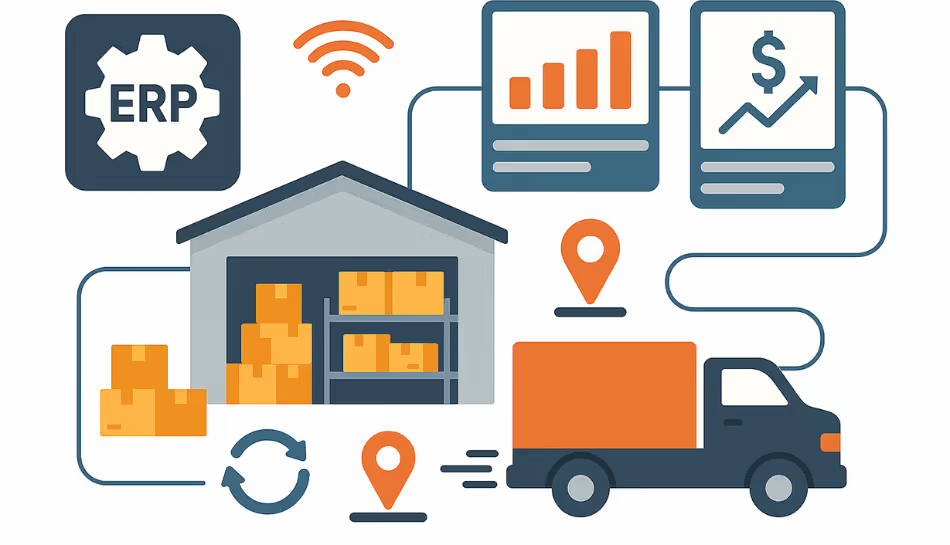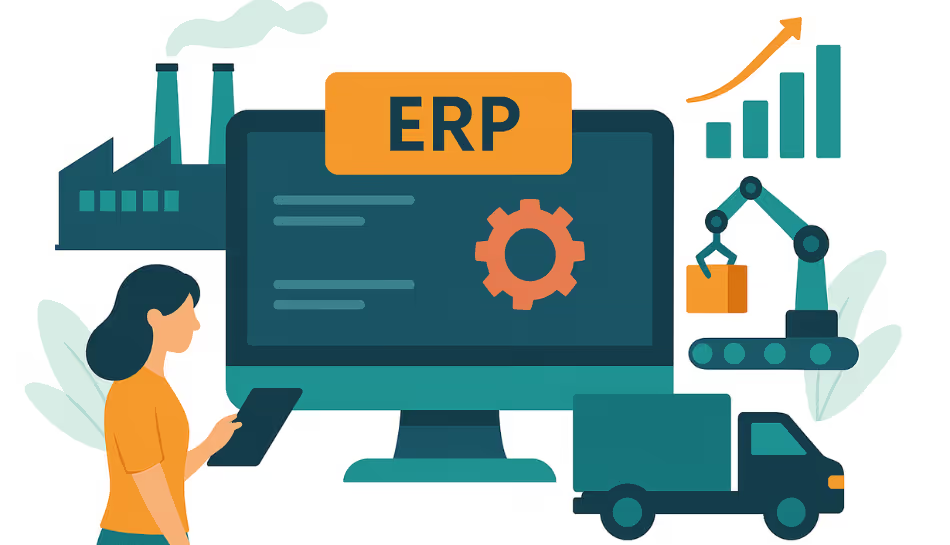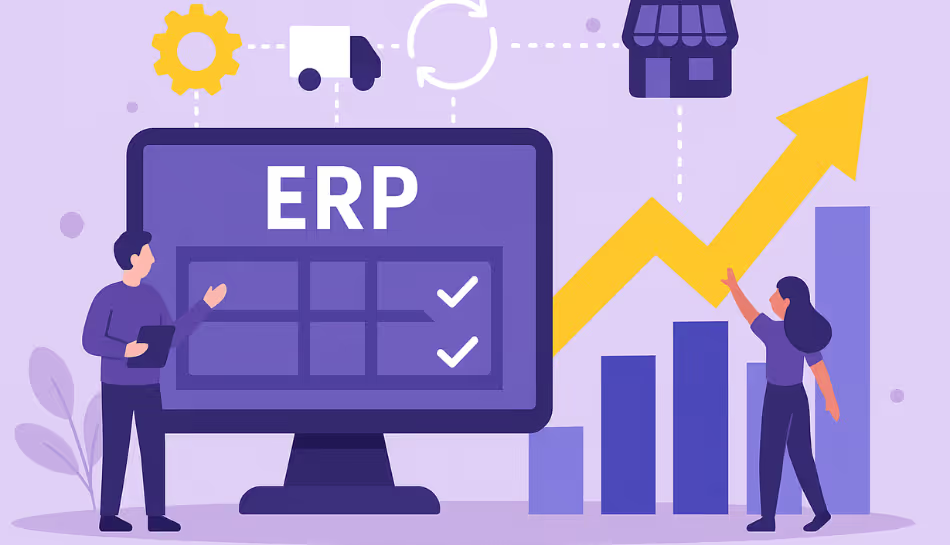In the logistics world, everything revolves around time, accuracy, and cost-efficiency. Whether it’s shipping goods across continents or managing a local supply chain, even small delays or errors can lead to major setbacks. This is why companies are increasingly investing in ERP for the logistics industry to gain control, visibility, and scalability across operations.
A logistics ERP system helps streamline core processes like inventory tracking, order fulfillment, transportation, invoicing, and customer communication, all under one platform. Whether you run a large supply chain or a logistics software for small business, the right ERP solution can be a game-changer.
What Is a Logistics ERP System?
A logistics ERP is an integrated software solution that connects various departments and functions involved in transportation, warehousing, and supply chain management. It acts as a digital backbone for operations such as:
- Shipment tracking
- Vehicle and fleet management
- Route optimization
- Inventory control
- Billing and documentation
- Vendor and customer coordination
In short, an ERP system for logistics automates tasks, enhances visibility, and improves decision-making, all while cutting operational costs.
Key Benefits of ERP for the Logistics Industry
1. Real-Time Tracking and Visibility
With ERP, you can monitor the movement of goods at every stage, from warehouse to destination. This helps logistics managers:
- Track shipments in real time
- Prevent bottlenecks
- Respond quickly to delivery delays
Integrated logistics management systems also allow customers to track their orders, improving transparency and trust.
2. Inventory and Warehouse Management
ERP solutions make it easier to:
- Monitor stock levels across locations
- Automate restocking alerts
- Reduce overstocking and understocking
- Improve warehouse picking and packing accuracy
With logistics ERP software, you can optimize warehouse layouts and improve fulfillment speeds.
3. Faster Order Processing
Manual order entries often lead to mistakes and delays. An ERP system logistics module automates:
- Order entries
- Shipping label generation
- Invoicing and payment reconciliation
This reduces paperwork, eliminates duplication, and speeds up order-to-cash cycles.
4. Better Transportation Management
A robust logistics software enables:
- Route optimization
- Fuel and cost tracking
- Driver and fleet scheduling
- Vehicle maintenance planning
By managing transportation efficiently, businesses save time, reduce fuel consumption, and improve on-time delivery rates.
5. Enhanced Customer Service
When all systems are connected, orders, inventory, delivery, and billing, your customer service team can provide quicker, more accurate updates. ERP systems allow:
- Centralized customer data access
- Instant updates on shipments or invoices
- Easy returns and complaint tracking
This helps build long-term client relationships and improves satisfaction.
6. Scalability for Growing Businesses
Whether you’re running a regional courier business or scaling a global supply chain, a flexible ERP can grow with you. Many modern providers offer logistics software for small business with modules that can be expanded over time.
This modular approach helps you stay agile without needing to change systems every time your operations grow.
7. Improved Compliance and Reporting
From tax filing to import/export regulations, logistics companies must comply with a range of legal requirements. An ERP software for logistics industry includes features for:
- Automated documentation
- GST and tax compliance
- Audit-friendly financial reports
- Secure recordkeeping
This not only reduces legal risk but also prepares your business for audits or inspections.
Final Thoughts
In an industry where margins are tight and expectations are high, operational efficiency is non-negotiable. A modern logistics ERP system helps companies manage complexity, reduce costs, and deliver better service.
Whether you're a freight forwarder, a 3PL provider, or a growing delivery startup, investing in a logistics business management software can streamline your entire operation, and future-proof your growth.



